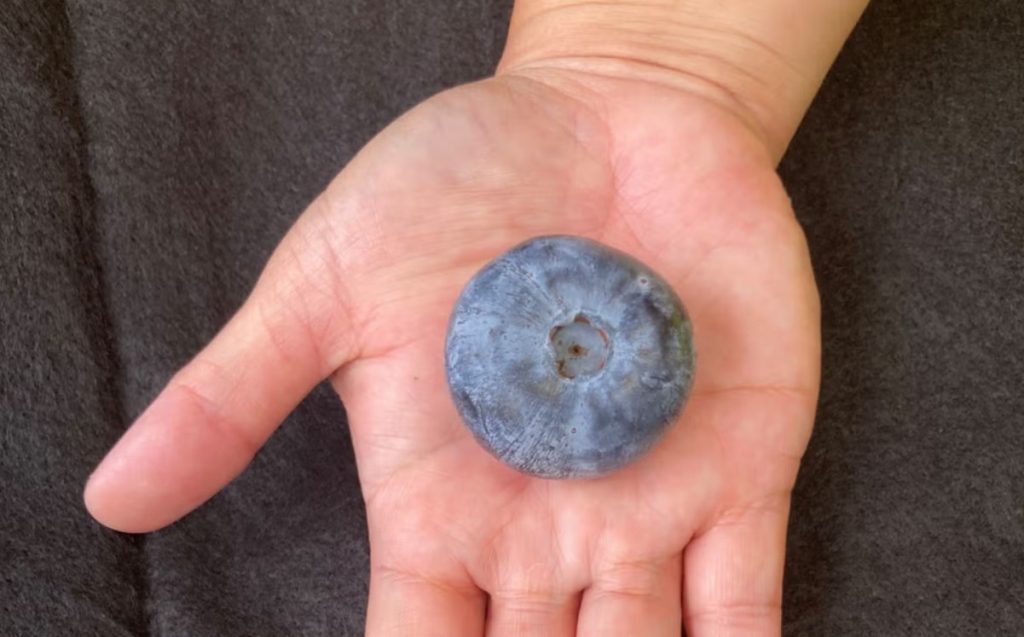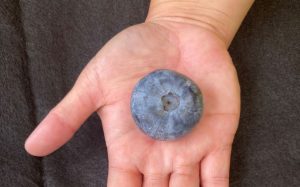Farmers say ‘20 or more fruit’ from same crop would have broken previous record

The Guinness World Record-breaking berry from Costa weighs 10 times more than a normal blueberry
An Australian farm has grown the world’s biggest and heaviest blueberry, smashing the previous Guinness World Record.
The giant fruit, which is the size of a golf ball, was picked in November at a farm at Corindi, managed by Costa Group, in the New South Wales Mid North Coast, one of Australia’s largest blueberry growing regions.
The biggest berry came in at 39.31mm wide and weighed 20.4 grams, around 10 times the average weight of a bluberry – typically between 1 gram and 3.5 grams.
This week Guinness World Records publicly verified the Corindi blueberry as the world’s biggest, breaking the previous record set by a berry grown in Western Australia in 2020 by 1.23 times.
“This really is a delightful piece of fruit,” said Brad Hocking, senior horticulturist at Costa Group who was part of the team that grew the blueberry.
The blueberry belongs to the new Eterna variety developed by the company in response to consumer demand for larger berry sizes across Australia.
“While the fruit is large, there’s absolutely no compromise on quality or flavour as would be expected when developing a premium variety blueberry,” Mr Hocking said in statement.
The team told BBC News that they knew they were onto a record for some time as their farmers had been reporting bigger and bigger berries for a while.
“It wasn’t really until we put them on the scale that we realised what we found,” the lead horticulturist said.
“The record-breaking fruit was obviously particularly large, but we would have picked 20 or more fruit on that morning that would have broken the previous world record.”
The company said it was overjoyed to have the record officially verified after 12 weeks of waiting.
“We are always looking to develop new varieties that improve on the current benchmark and meet evolving customer requirements,” George Jessett, Costa Berries international horticulture manager, said in a statement.
“We are also looking to breed varieties that are more adaptable to hotter climates, are more drought tolerant and with better resistance against pest and disease pressure,” he said.
The team says they’re not ready to eat this blueberry yet. It has been frozen in ice for the time being.
“There’s been a few ideas, maybe like a resin cast and mounting it on the wall or something,” Mr Hocking said.










